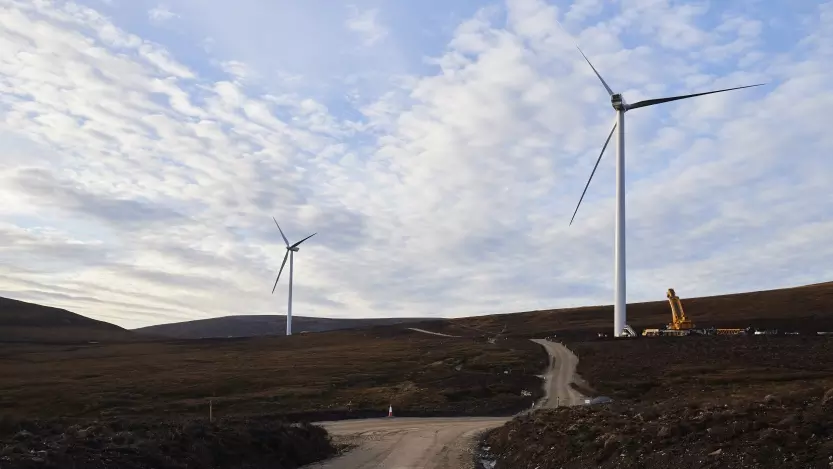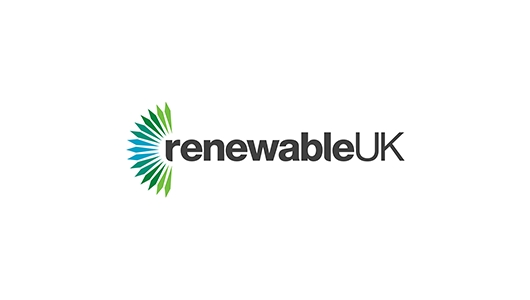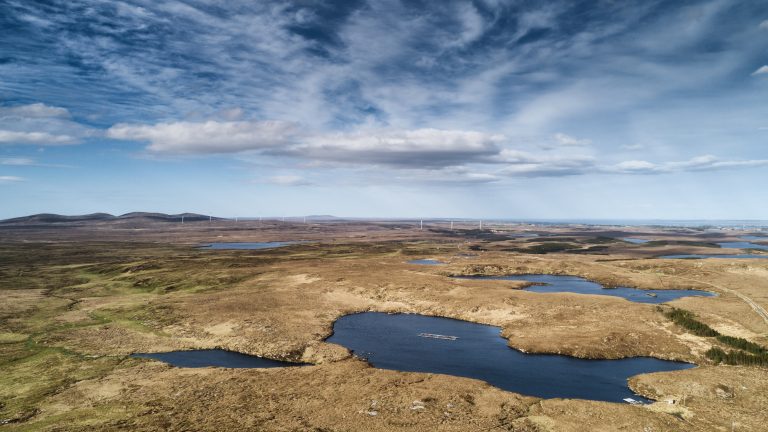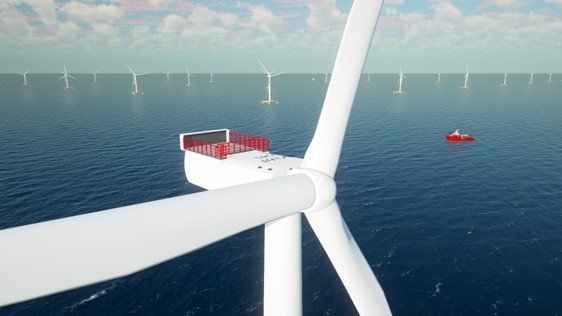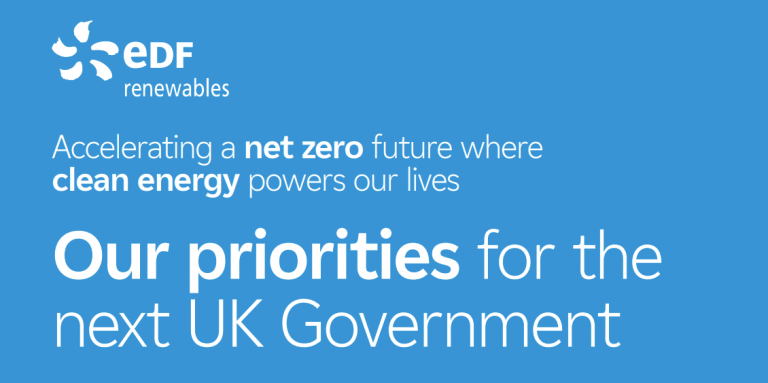
Jenny Howard joined EDF Renewables’ growing team in Ireland as Development Manager in 2019. It’s a broad and varied role, which can see her talking to a landowner one day and working on GIS mapping the next. Read Jenny’s blog to find out about the challenges involved in taking a wind farm from project inception to construction, the hurdles Ireland needs to overcome to meet its Net Zero targets, and what advice Jenny has for anyone considering a career in renewables.
Day-to-day working life in renewables
Q. What does your job as Development Manager involve?
A. My role is to develop our greenfield portfolio of renewables sites in Ireland, including onshore wind and solar. It’s a generalist role, as I’m spread across all aspects of developing a potential site and we’re still a growing team in Ireland. So I’m involved in everything: from feasibility studies, to strategy, engineering and planning, grid applications, project management, budgetary constraints and more! But that’s also the way I like to work: I do as much as I can, of everything I can.
At the start of the development cycle, we undertake a constraints exercise to identify potential greenfield sites that may be suitable for developing a wind farm. Then, for each potential site, we look at relevant wind energy strategy, access to the grid, wind speeds, public acceptance to wind energy in the area, and so on. It’s a balancing act between finding suitable land and making sure the conditions for development are right too.
We focus on developing sites in-house, but we also maintain industry contacts so we stay abreast of any merger and acquisition (M&A) opportunities and develop these, if there is appetite to do so. We’re very conscious that Ireland has a target to generate 80% of electricity from renewables by 2030. So we need to bring on a large portfolio of sites, particularly as some won’t make it through the development cycle when we get into more advanced feasibility studies. There might not be access to the grid or the economics might not stack up for some sites, for example.
We work closely with our colleagues across EDF Renewables to take projects through these stages– known as the ‘Gate Process’. The ultimate aim is to bring successful projects through to a financial investment decision (FID).
Q. How has Covid affected your day-to-day working life?
A. In my role, it’s had a big impact on being able to meet with landowners and industry contracts face to face over the past two years. But, now that restrictions have lifted, we can get back out to meet with landowners, and I think this will have a really positive impact on relationships and our ability to progress projects.
Covid has also changed the way we work as an organisation. In our Irish team, we’ve now moved towards a more hybrid way of working with approx. two core days in the office and the remainder working from home or on site.
Developing a career in the renewables industry
Q. How did you get into renewables?
A. I’m a Chartered Engineer, so I did a degree in Mechanical Electronics. It was heavily focused on design and electronics with an eye to providing a springboard into one of the many multinationals (like Motorola and HP) that had moved to Ireland at that time. And I was really interested – and still am – in electronics and gadgets. But by the time I’d graduated, the landscape was changing and a lot of multinationals had started to leave Ireland! So I had to adapt and decide what to do next.
I worked in an admin role for two years, while I decided what direction I wanted to go in. I learned a lot about project administration and time management in this role, so it was a very valuable experience. I then moved into a design and estimation role, working on large-scale electrical switch gear for industrial units, apartment blocks, hotels and so on. At this time, the Dundalk Institute of Technology had installed an 850 kW wind turbine on campus. The company I was working with at the time was working on a design for a small electrical installation for the project and it really piqued my interest in renewables – I wanted to know more!
I started actively looking for roles in the renewables industry, before landing a job at Wind Prospect in 2008 as a Project Engineer. With this role, I moved to the consultancy side of projects and discovered I have a flair for contracts! I am a control nut by nature, so I naturally gravitated towards project management and development, and it’s framed my career ever since.
I completed an MSc in Renewable Energy Systems in 2014 back in Dundalk Institute of Technology, and I was proud to win the Presidents Prize for Academic Excellence for that graduating year. I love learning about the industry. I’m fascinated by the technical aspects, but also the steps needed to get there – I’m a real generalist.
Q. Do you think your choice of degree subject helped you into the industry?
A. I think so – my degree was extremely hands on and you weren’t spoon fed at all. Our second year was spent on work placement, which gave me a good grounding in the world of work and equipped me with a lot of skills.
More recently, I augmented my knowledge with my Master’s degree, which covered a lot more policy and project management. I’d also recommend undertaking every little bit of CPD (continued personal development) you can do too – such as courses from Engineers Ireland, the SEAI (Sustainable Authority of Ireland) and Wind Energy Ireland.
Diversity and inclusion within the renewables sector
Q. Do you think the industry could do more to encourage more women into the sector?
A. If you look at the EDF Renewables team in Ireland, we have a really good balance. Women are well represented and we’re all in different roles.
In fact, since I began working in the industry, I’ve been impressed by the number of females I’ve met. But that’s not to say more can’t be done… Renewable Energy Ireland, for example, created a directory of ‘women in energy’ willing to speak on panels, last year. Their reason being that although there are large numbers of females working in the industry, we’re not always well-represented at events or on forums. So there’s a move to encourage more inclusion in the sector, which I strongly welcome.
There’s also still a problem with women dropping out of the industry too. In fact, I think it’s fair to say there’s a challenge across all industries with women struggling to find the right work/life balance when they have a family! But with the right support, it is possible. EDF Renewables is very proactive in this area, for example, and has tools and support in place to help with the transition.
Love what you do; do what you love
Q. What’s your favourite part of your job?
A. I genuinely feel that I’m making a contribution to our energy future for the next generation. In terms of my specific role, I love how broad and diverse it is. We might be dealing with landowner agreements one day; contracts the next; GIS mapping or environmental issues the day after.
I also love the variety of people I meet along the way – from environmental consultants to ornithologists to grid specialists. As a developer, meeting landowners is a huge part of what I do. I’ve met such great characters; many of which are now lifelong friends. And my role has taken me to every part of the country too – areas I might never otherwise have seen.
Q. And what’s your least favourite?
A. The most frustrating part of my job is the time taken from project inception to conception and operation – partly because there isn’t a holistic approach to renewables. So while the Irish Government has a national target to generate 80% of electricity from renewables by 2030, policies at a local level are out of date or out of kilter with national policy; or progress is generally slow on strategic infrastructure projects (like updating our grid) to make this a reality.
But these challenges are always going to be with us one way or another. And many of them are outside our control to an extent. We can lobby for improvements but, by and large, everyone in the industry faces the same issues.
Future developments in wind power
Q. What do you see for the future of renewables in Ireland?
A. There’s a huge growth trajectory for Ireland with the Government’s target to generate 80% of electricity from renewables by 2030 and our country’s net zero ambitions. It’s exciting to be part of this and to see the reinvigoration of the industry, as there was a hiatus following the end of the REFIT scheme and the design of the new RESS support scheme.
Q. Which areas of innovation are you most excited about?
A. Obviously I’ve been watching keenly over the years the developments in turbine technology: the increase in size and scale of new turbines, for example.
But one area that excites me personally is microgeneration: small-scale wind and solar projects. This is an exciting area because if you can embed renewable energy on a domestic scale and community level, you start to normalise it. And this has huge potential to increase the support for commercial scale projects.
There was previously a microgeneration scheme in Ireland; but consumers couldn’t sell any excess electricity back to the grid, only offset their own domestic demand. Now the idea of microgeneration has been reinvigorated, with a new scheme recently announced. There’s been something of a societal shift too, with more people considering their personal responsibilities when it comes to tackling climate change.
One of the impacts of Covid-19 was that it restarted the conversation about the decentralisation of industry in this country. We all travelled into Dublin previously, as it’s the largest urban centre. But Covid-19 has reignited that conversation about having remote working hubs in a more diverse spread of areas around the country. I think this will drive more innovation and policy for a distributed grid model and open up smaller grid connected projects.
Q. What would you say to your son if he was interested in a career in renewables?
A. I’ve already decided it’s going to be his career path! Renewables is such a diverse industry – certainly my role is. I love it, because it exposes me to so many different areas. It’s such a dynamic industry as well; no one day is the same.
There are also new technologies emerging constantly. We think of renewables as just being about wind turbines and solar panels. But there’s so much more to it: district heat schemes, domestic scale renewables, community projects and cooperatives. It’s so broad, and I would encourage any young person into renewables. It’s a chance to secure our energy future and it’ll be an exciting industry for many years to come.


